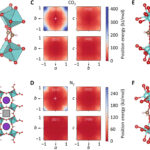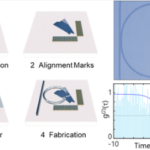音波を使った3Dプリンターで物質を立体的に組み立てることに成功 Scientists assemble matter in 3D using sound waves for 3D printing
2023-02-09 マックス・プランク研究所
◆アディティブ・マニュファクチャリング(3Dプリント)は、機能性材料や生体材料から複雑なパーツを製造することができます。従来の3Dプリンティングでは、オブジェクトを一度に1つのラインまたは1つのレイヤーで構築するため、プロセスに時間がかかることがあった。ハイデルベルクとチュービンゲンの研究者たちは、このたび、より小さな構成要素からわずか1ステップで3Dオブジェクトを形成する方法を実証しました。
◆ピアFischerたちは、これまでの研究で、音響ホログラム(3Dプリントされたプレートで、特定の音場をエンコードするように作られている)を使って超音波を形成する方法を示しました。この音場を使って、物質を2次元のパターンに組み立てることができることを示したのである。これをもとに、製作のコンセプトを考案しました。
◆今回の研究で、研究チームはこのコンセプトをさらに一歩推し進めることができた。水中に自由に浮遊する粒子や細胞を捕獲し、3次元の形状に組み立てるのである。そのうえ、この新しい方法は、ガラスやハイドロゲルのビーズ、生体細胞など、さまざまな材料で動作する。
◆研究者らは、この技術が3次元での細胞培養や組織形成のための有望なプラットフォームになると考えている。超音波の利点は、生体細胞を使うのに穏やかであることと、組織の奥深くまで到達できることです。このように、細胞を傷つけることなく遠隔操作したり、押したりすることができるのです。
<関連情報>
- https://www.mpg.de/19859671/0209-mefo-creating-3d-objects-with-sound-153070-x?c=2249
- https://www.science.org/doi/10.1126/sciadv.adf6182
コンパクトなホログラフィック音場により、ワンステップで物質を3次元的に高速に組み立てることが可能 Compact holographic sound fields enable rapid one-step assembly of matter in 3D
Kai Melde,Heiner Kremer,Minghui Shi,Senne Seneca,Christoph Frey,Ilia Platzman,Christian Degel,Daniel Schmitt,Bernhard Schölkopf ,Peer Fischer
Science Advances Published:8 Feb 2023
DOI:https://doi.org/10.1126/sciadv.adf6182

Abstract
Acoustic waves exert forces when they interact with matter. Shaping ultrasound fields precisely in 3D thus allows control over the force landscape and should permit particulates to fall into place to potentially form whole 3D objects in “one shot.” This is promising for rapid prototyping, most notably biofabrication, since conventional methods are typically slow and apply mechanical or chemical stress on biological cells. Here, we realize the generation of compact holographic ultrasound fields and demonstrate the one-step assembly of matter using acoustic forces. We combine multiple holographic fields that drive the contactless assembly of solid microparticles, hydrogel beads, and biological cells inside standard labware. The structures can be fixed via gelation of the surrounding medium. In contrast to previous work, this approach handles matter with positive acoustic contrast and does not require opposing waves, supporting surfaces or scaffolds. We envision promising applications of 3D holographic ultrasound fields in tissue engineering and additive manufacturing.



